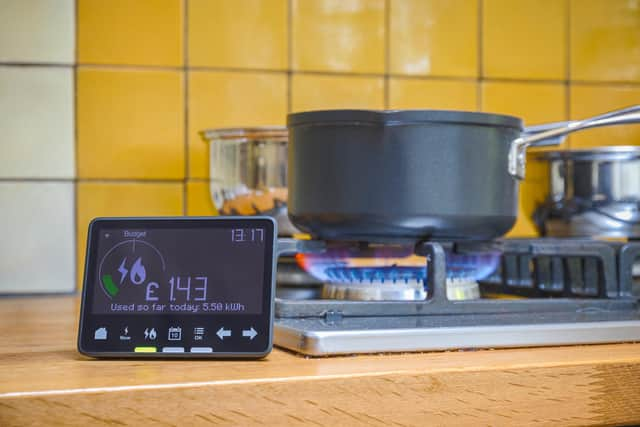Fuel poverty charity issues dire warning as cost of heating homes in Portsmouth doubles in a year
and live on Freeview channel 276
National Energy Action said the situation will continue to deteriorate this year as customers face spiralling energy bills when the Government's Energy Price Guarantee – which means bills for a typical household are currently capped at £2,500 per year – rises in April.
The latest figures from the Department for Business, Energy and Industrial Strategy (BEIS) show the average Portsmouth household consumed 9,264 kilowatt-hours (kWh) of gas and 2,522 kWh of electricity in 2021.
Advertisement
Hide AdAdvertisement
Hide AdOne kWh would run an average oven for around 30 minutes, while the median has been used to exclude extreme values which could skew the average.


At the current charging rates capped by the Government, it means the average household on a variable tariff continuing to use the same amount of energy as in 2021 would be paying around £2,054 per year to run their home.
Based on prices last winter, the average Portsmouth household would have had an annual spend of approximately £1,086 for the same amount of energy – just over half as much.
Energy usage varies throughout the UK, so comparable figures for Havant are 10,236 kilowatt-hours (kWh) of gas and 2,825 kWh of electricity in 2021, costing £1,189 in 2021. The same amount of energy would cost around £2,254 this year.
Advertisement
Hide AdAdvertisement
Hide AdIn Gosport they consumed 9,091 kilowatt-hours (kWh) of gas and 2,691 kWh of electricity in 2021, costing £1,115 – or £2,094 at today’s prices.
And Fareham consumed 10,633 kilowatt-hours (kWh) of gas and 2,875 kWh of electricity in 2021, costing £1,215 – or £2,311 at today’s prices.
Households on a fixed tariff will pay for energy at their current rate until the term comes to an end.
Adam Scorer, chief executive of fuel poverty charity National Energy Action, said the situation could worsen this year following the end of the current Energy Price Guarantee, claiming one in three households will be in fuel poverty. Mr Scorer said this means people ‘will be forced to bed wearing coats, ration showers and hot water, run up huge debts or self-disconnect and go cold.
Advertisement
Hide AdAdvertisement
Hide Ad‘Millions of the most vulnerable – carers, people with disabilities, those on low incomes and living in inefficient homes – are already bearing the brunt this winter. The effects of this are devastating on both physical and mental health. Make no mistake, cold homes can kill. Government intervention must prioritise the most vulnerable in 2023 and beyond.’
A BEIS spokesperson said it has recently launched a new campaign ‘It All Adds Up’ to help families reduce their energy bills. They said: ‘We know it is a difficult time for families across the country. That is why we have acted swiftly to provide support, including the Energy Price Guarantee, which is saving the typical household around £900 this winter, as well as £400 payments towards bills and £1,200 for the most vulnerable households.
Energy consultancy firm Cornwall Insights predicts the price cap regulated by Ofgem will sit at about £3,500 between April and June – though the typical household will be charged £3,000 at most during this period under the Government's Energy Price Guarantee.